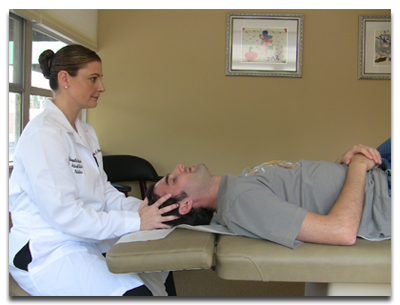

What is the difference between a D.O. and an M.D.?
A D.O. is a doctor of Osteopathy and an M.D. is a medical doctor. They both have four years of medical school and have similar curriculum and board certifications. However, D.O.s focus on the anatomy of the human body, and have extra classes where they learn Osteopathic Manipulative Medicine (OMM). Both types of physicians must complete a residency in their field of choice. D.O.s can do any residency that an M.D. can, but there are some D.O. approved residencies that M.D.s cannot do because of the lack of training in OMM.
What is the difference between a D. O. and a Chiropractor?
A D.O. has four years of medical school training and must complete a residency to practice in any field of medicine. Chiropractors attend Chiropractic school and do not have the extensive training in medicine. Chiropractors tend to focus on the spine and use manipulation to this area. D.O.s apply manipulation to the entire body and recognize that the body is inter-related. Therefore, you must treat the whole body in order to achieve health.
What insurances do you accept?
Much like most D.O.s that specialize in Osteopathic Manipulative Treatment, we are a fee for service practice. This means that we require the patient to pay for the care at the visit. However, we supply the patient with an encounter form that they can submit to their insurance company. The patient will be eligible for the amount their insurance company will reimburse.
Do you "snap, crackle and pop" the patient?
Many patients do not like High Velocity, Low Amplitude (HVLA) techniques, and often refer to them as the "snap, crackle and pop" techniques. This is when a physician or chiropractor will "crack" your back or neck. Although Dr. Olex is trained in these techniques, she does not feel it is necessary to use them.

What should I wear to a treatment?
You may wear whatever you feel most comfortable in, however, loose fitting clothes are preferred.
Is there anything I need to do after a treatment?
We recommend that you stay well hydrated after a treatment. Also, you may feel energized after a treatment, but we recommend no heavy exertion immediately following.
Will I feel sore after a treatment?
Most patients feel great after a treatment, and often have more energy than they have had in a long time. However, some patients do experience some soreness in one or two days after a treatment. Imagine if you have not stretched for ten years and you go out and stretch for several hours. You would probably not be surprised if you woke up in the morning a little sore.